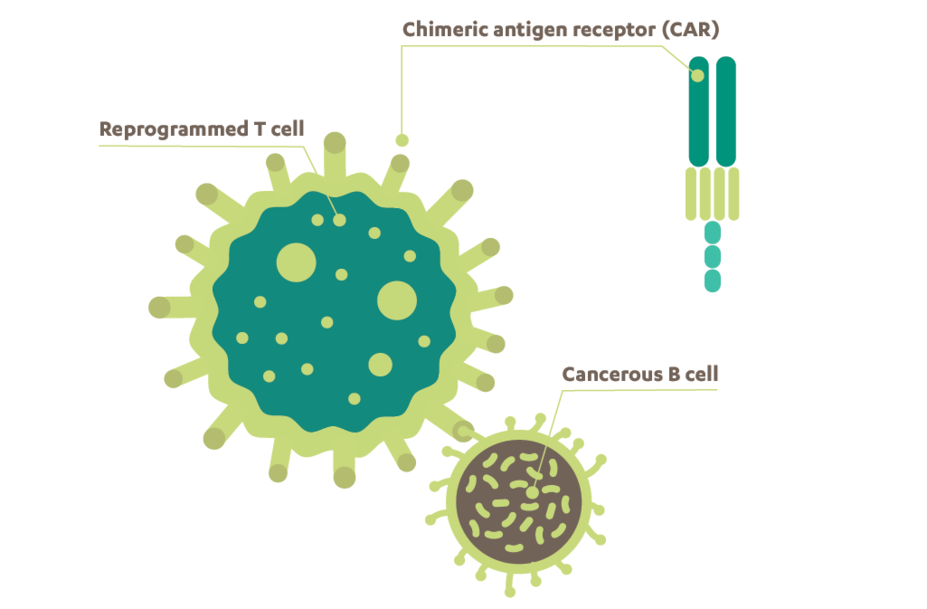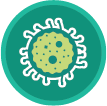Understanding KYMRIAH
Is KYMRIAH right for me?
KYMRIAH® (tisagenlecleucel) is a treatment used in patients with non-Hodgkin lymphoma, including diffuse large B-cell lymphoma (DLBCL), that has relapsed or is refractory after having at least 2 other kinds of treatment.
KYMRIAH is different from a stem cell transplant (SCT). You do not need to be in complete remission to receive KYMRIAH. If you are considering treatment options, talk to your doctor about KYMRIAH. Go to What should I ask my treatment team? for help speaking with your doctor.
Refractory, your cancer did not respond to treatment; Relapsed, your cancer has returned.
Topics to discuss with your doctor:
✓ Your treatment history, including if you have had previous stem cell transplants
✓ Your cancer’s response to previous therapies
✓ All current medications, including any supplements or steroids
✓ Other medical conditions you may have
✓ What tests are needed to make sure KYMRIAH is right for you

KYMRIAH CAREGIVERS
Be prepared to help with doctor discussions. Whether you’re preparing your loved one ahead of time or learning some of his or her medical history for yourself, it’s useful to keep a little notebook with information you think will be important.
What is KYMRIAH?
Learning that your cancer has returned or isn’t responding to treatment is devastating. However, there may be another option that is different from what you’ve been treated with in the past. KYMRIAH is a therapy specifically made for patients like you, with relapsed/refractory (r/r) DLBCL. Unlike traditional chemotherapy or stem cell transplant, KYMRIAH is a type of immunotherapy called CAR-T cell therapy, or chimeric antigen receptor T cell therapy.
Antigen, markers on cells that help your immune system identify normal cells from infected or cancerous cells; CAR-T cell therapy, a specific type of cancer treatment. The CAR in CAR-T stands for chimeric antigen receptor, and the T stands for T cell; Chimeric, cells coming from genetic materials (such as DNA) that are from more than one organism; Immunotherapy, a type of therapy that targets certain cells of the immune system to help the body fight cancer, infection, and other diseases.
How does KYMRIAH work?
CAR-T cell therapy harnesses the power of your own T cells—which naturally recognize and fight foreign invaders but sometimes need some additional help.
KYMRIAH is made up of your own T cells that have been reprogrammed to be better at detecting and destroying the cancerous B cells in your body. Your T cells will be able to recognize an antigen on your B cells called CD19. Antigens are markers on cells that help your immune system identify normal cells from infected or cancerous cells.
B cells, along with other cells, make up your body’s immune system. They defend the body by producing antibodies; CD19, an antigen located on your B cells; T cells, along with other cells, make up your body’s immune system. They are natural defenders that detect and destroy possible threats such as infected or cancerous cells.
What makes KYMRIAH different from other therapies?
KYMRIAH is different from other therapies because it is an individualized therapy that uses the power of your own immune system to fight your cancer.
KYMRIAH is different from a stem cell transplant (SCT). Speak to your doctor to see if you may be eligible for KYMRIAH. | |
If your cancer has returned and/or isn’t responding to other treatments, KYMRIAH may be right for you. You do not have to be in remission (or get into remission) to begin KYMRIAH therapy. | |
KYMRIAH is typically given in a single infusion. | |
Your physician may decide to give you a short course of chemotherapy before receiving KYMRIAH. This prepares your body for new CAR-T cells. | |
KYMRIAH enhances the ability of your T cells to detect and destroy your healthy and cancerous B cells. |





